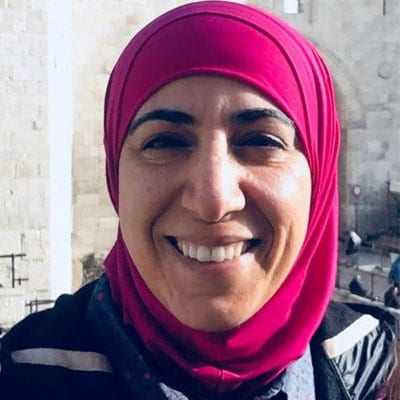Earlier this month, Professor Paul Hellewell, Vice Provost and Dean of the College of Health, Medicine and Life Sciences at Britain’s Brunel University, assured its students that an “anti-Israel” article recommended as part of a course curriculum would not be used again. The article in question was my 2019 interview published in Quartz, which took issue with the applicability of PTSD diagnosis to Palestinian victims of political violence.
Apparently, the objection to my article was first raised by Brunel first-year students in Occupational Therapy and then supported by an organisation unrelated to the university, UK Lawyers for Israel (UKLFI). This organisation’s webpage very clearly identifies its objective as the generation of political messaging in support of the state of Israel. Nevertheless, seemingly without recognising the irony of its position, UKLFI objected to the use of my published interview as an example of cultural perspectives on medical diagnosis by proclaiming that it is “undesirable to mix the objective study of occupational therapy with political propaganda.”
UKLFI claimed that the article was liable to promote hostility towards Jewish students and said: “Emphasising suffering of Palestinians without any reference to suffering of Israelis who are also traumatised by the conflict, the article included misleading and irrelevant allegations against Israel. For example, the article referred to house demolitions in East Jerusalem in a way which implied that they are frequent, when they are extremely rare, and falsely claimed that nearly every Palestinian building is deemed illegal by Israeli authorities.”
With regard to these UKFLI claims, it appears that open debate regarding the relevant facts is sorely needed. The 2019 report from the UN Office for the Coordination of Humanitarian Affairs (OCHA) makes clear that only 13 per cent of Israeli-occupied East Jerusalem is zoned for Palestinian construction, whereas 35 per cent is allocated for illegal Israeli settlement; and at least one third of Palestinian homes lack an Israeli permit, potentially placing 100,000 Palestinian at risk of displacement.
READ: Mass protest in front of London Israel embassy
Initially, it appeared that open debate at Brunel might be permitted. Under the first UKFLI assault on Brunel’s academic freedom, Hellewell apparently did not agree to remove my interview but instead acknowledged that some curriculum materials have the potential to cause distress to students. The UKFLI website explained in February 2022 that Brunel would welcome the opportunity to explore these issues in an open forum. Sadly, however, by this month, Brunel had buckled under pressure and reversed its position. The possibility of open debate was silenced. My interview was stricken from the curriculum.
The case of Brunel University backing down under overtly political, pro-Israel lobby pressure is not new or even unique. It is just one example of the hypocrisy, reluctance and ambivalence within academia and elsewhere when it comes to academic freedom and progressive thought generally, especially relating to occupied Palestine.
For Palestinians and other oppressed and colonised peoples, knowledge is the pathway to changing the often dismal reality for the better. However, the obstacles facing us in generating professional knowledge are endless. In my case, I am continuously overworked and robbed of time to reflect on my own experience as a colonial subject, to question and to resist the imprint of coloniality on my thinking and practice. Every contribution is made under the stress of time restriction, sleep deprivation and anxiety about a potential attack and rejection.
There is an ever-present awareness that putting forward an academic contribution is financially draining; conferences and journals ask for fees that can exceed the monthly salary of a specialist Palestinian doctor. How can we share our perspectives with global readers and conference participants when they only represent those who can afford to pay for the conferences and journals to which we try to contribute? The entire process of mainstreaming knowledge overlooks the colonised and oppressed. And when a few Palestinian academics do manage to bypass the obstacles presented by the process, then we also have to face intimidation and exclusion by Israel and its supporters. The influence of pro-Israel lobby groups such as UKLFI and the Canary Mission website in the silencing of Palestinian voices is pervasive.
At this time, the ongoing and long-term professional hypocrisy regarding Palestine is being exposed through the willingness to discuss Ukraine within the spheres of academia, mental health and sports. Brunel University has missed an opportunity to resist the pressure for “Palestinian exception” and to welcome a full range of intellectual perspectives, including decolonial thought. Instead, the university has fallen prey to pro-Israel lobbying and thus contributes to the repression and silencing of the trauma in occupied Palestine.
The views expressed in this article belong to the author and do not necessarily reflect the editorial policy of Middle East Monitor.

![Brunel University [Brunel University/Flickr]](https://i0.wp.com/www.middleeastmonitor.com/wp-content/uploads/2022/04/4339847165_6ede94484a_o-e1650968248997.jpg?fit=920%2C612&ssl=1)







